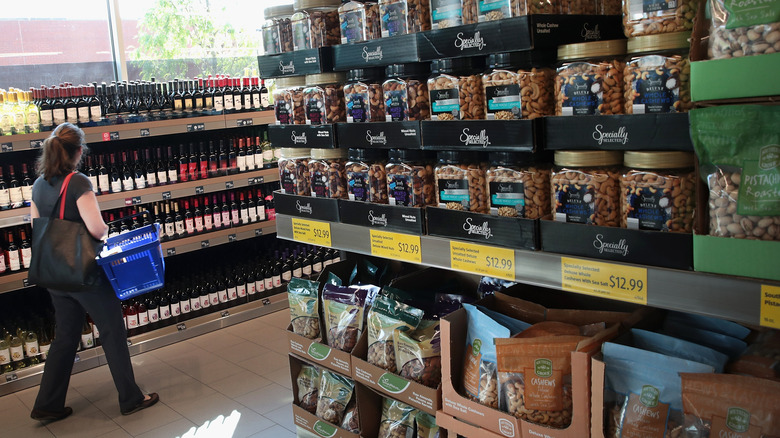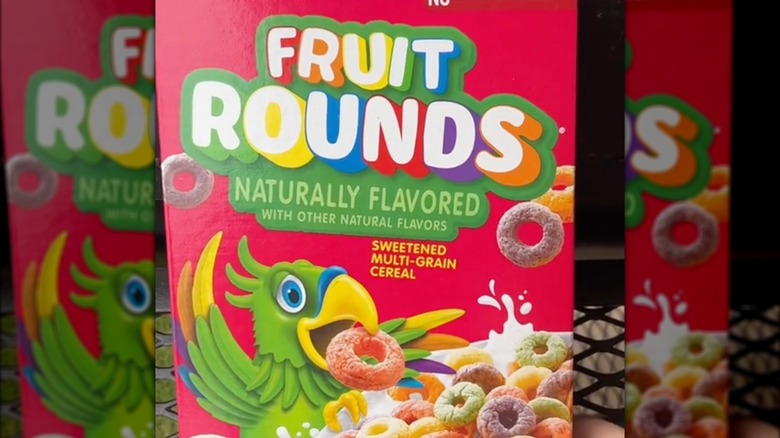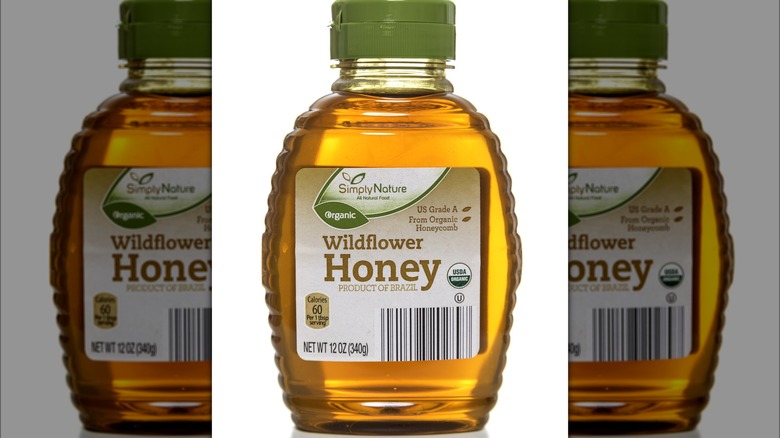Aldi's Lack Of Brand Name Products Is By Design
An average consumer from a year ago would roll in their grave seeing how high average grocery prices are today, let alone a decade ago. In fact, groceries are now 25% more expensive than in 2020. In a sector full of price hikes that far outpace inflation, grocery shoppers can always count on Aldi for some of the fairest deals out there. The discount grocery store has not been immune from inflationary effects, but the grocer continues to employ an ingenious set of cost-cutting tactics to help ensure its product prices stay reasonable.
When perusing the aisles at Aldi, you may notice a lack of big-name brands. Though many products are uncannily similar to the originals we know and love, Aldi strategically avoids stocking its shelves with those originals and sticks almost entirely to its private-label products. Similar to other unique quirks of Aldi, the store's general avoidance of brand-name products is another way it keeps operation costs to a minimum.
The hidden costs of brand name products
The unique brands that line Aldi's shelf include Simply Nature, Specially Selected, and LiveGfree—the gluten-free product line, among others. The Aldi website states: "Our exclusive brands taste as good as (some even say better than) national brands. Yet they cost up to 50%* less. So how do we do it? We start by bargaining hard with our suppliers for the best deals. Then, we pass the savings on to you!" In other words, big food brands are the middlemen that Aldi cleverly cuts out.
Instead of the classic Kellogg's Froot Loops, for instance, Aldi offers Millville Fruit Rounds. One TikToker even compared the two cereals.
@padiano This is why I love TikTok. Always learning new things. #padiano #artificialdyefree #aldifinds
Just as they attest, the video notes that the Aldi version tastes exactly like the original and sells at a lower price. The same can be said for countless other private-label products. One commenter suggested: "Try the Cinnamon Crunch Squares and Berry Kids Krunch from Aldi! They taste just like, if not better than, Cinnamon Toast Crunch and Captain Crunch!"
The basic strategy of most retailers is to purchase from popular brands at a bulk price and sell at a marginal profit. Most large chains have generic products for items they feel they can replicate well — like Walmart's Great Value brand — but Aldi does it for nearly everything they sell.
High quality, low prices
Aldi's private-label practice is reminiscent of its sister brand, Trader Joe's. Shoppers are fond of the store's ability to keep its prices reasonable without skimping on the quality of its products, and sticking to a store-brand for the majority of store items is one significant way it can do so. There are some exceptions; the household brand, Coca-Cola is typically sold at Aldi, for example, as for fans, no generic cola will do.
Sticking to store-brand labels is one of Aldi's many unique money-saving methods. Aldi's shopping carts requiring a quarter for use and the store never playing music are both subtle practices to help the store keep its prices low. While luxury grocery stores like Erewhon get away with outrageously high prices, Aldi continues to get away with outrageously low prices on high-quality products. You can implement budget-friendly shopping hacks at any store, but a trip to Aldi is a hack in itself, and you don't need to get nearly as creative as they do.


